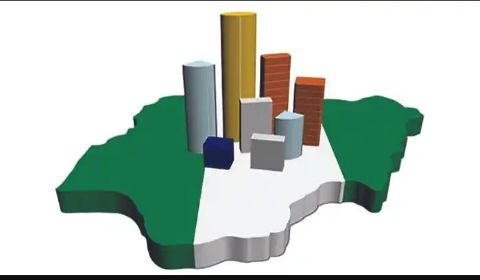The United Nations (UN) has predicted that the Nigerian economy will expand by 3% in 2023. High inflation and problems with the electricity supply, according to the UN’s 2023 World Economic Situation and Prospects report, are hurting Nigeria’s economic growth.
However, it added, “the economy will benefit from strong commodity trade and vibrant markets for consumer products and services, bringing growth to 3% in 2023.
According to the international organization, Africa’s total output is expected to remain muted as domestic problems are exacerbated by a turbulent and uncertain global environment. It is also of the opinion that “aggregate economic growth is anticipated to decline to 3.8% in 2023 from 4.1% in 2022, due to sluggish investment and declining export volumes.”
According to the analysis, growth is anticipated to rise in East Africa and West Africa in 2023, while it will stabilize in Central Africa. The paper claims that while favorable export prices will help commodities exporters, a decrease in global demand will provide difficulties. “African exporters of commodities would probably see weaker market circumstances due to the anticipated global economic slump. Despite this, export prices are likely to stay high due to strong rivalry over the main commodities of the continent.
“Commodity prices in 2023 are anticipated to decline, but they will still be at high levels. Despite price volatility in energy, metals, and minerals, commodity exporters are anticipated to continue to gain in the short term from an overall terms-of-trade boost to their external balances.
regional perspective
According to the UN, investors are likely to increase in Africa’s top exporters of minerals, including Botswana, the Democratic Republic of the Congo, Namibia, Nigeria, Sierra Leone, South Africa, the United Republic of Tanzania, Zambia, and Zimbabwe, as Europe searches for alternate sources of vital metals, precious stones, and minerals.
According to the analysis, as monetary policy tightens across the continent, inflation pressures are anticipated to decrease in 2023.
Inequality will persist, and countries won’t be able to make greater progress toward the SDGs, due to low and declining growth in per capita income, which is predicted to dip to 1.4% in 2023 from an average of 1.6% in 2021 and 2022.
Prices in African nations have increased dramatically by the global uptick in inflation, but are expected to level off in 2023, according to the analysis.
It claimed that by 2022, 40% of African countries would have double-digit inflation, primarily due to supply chain problems and the effects of Ukraine’s civil conflict increased the cost of basic food and energy supplies.
About two-thirds of African countries raised domestic policy interest rates in 2022 to battle inflation and exchange rate pressure. According to the analysis, most nations would likely continue to raise rates in 2023 in line with the anticipated monetary policies of the Federal Reserve in the United States and the European Central Bank.
financial issues
The research also stated that as governments attempted to safeguard citizens’ lives and livelihoods during the pandemic, fiscal circumstances across Africa have gotten worse. According to the UN, the average public debt has risen to more than 60% of GDP and is expected to stay there in 2023.
According to the research, a situation of this size was last witnessed in the early 2000s, right before the Heavily Indebted Poor Countries Initiative was introduced. Several African nations may find it difficult to service and refinance a sizable amount of debt as a result of increased interest rates, the report noted, notably in 2024 when the principal repayment of approximately $11 billion on Eurobonds will be due.
“Several African nations will be under more pressure to adopt economic reforms and reduce spending. But big adjustments will probably be put off by political uncertainty brought on by impending elections in several countries,” it warned. The paper claims that the African economic picture for 2023 is dominated by adverse risks.
“Continually high global inflation may lead to faster and tighter monetary policy by central banks in significantly advanced nations, which would reduce global demand, increase borrowing costs on the domestic and foreign markets, and reduce investment in the continent.
“A global slowdown, harsher financial circumstances, a drop in official development aid (ODA), and other factors might undermine attempts to safeguard more vulnerable groups in society and to sustain debt.
As regards the research, “unexpected capital outflows could destabilize economies with high external funding needs.”
It went on to warn that a protracted escalation of the conflict in Ukraine and disruption of Russian exports might amplify present inflationary pressures on food and energy costs, exacerbating concerns about food affordability for vulnerable people and possibly igniting civil unrest.
“High inflation, forceful monetary tightening, and heightened risk factors all point to a broad-based and severe recession of the global economy,” uncertainties. After only partially recovering from the pandemic’s shock, many economies are at risk of entering a recession, according to the report’s foreword by United Nations Secretary-General António Guterres.
He claimed that mounting debt distress, high borrowing costs, and currency rate depreciation are all putting pressure on the fiscal space of developing nations.
In conclusion, While containing inflation is a top priority for the immediate future, policymakers also need to take into account tradeoffs with slower growth, job losses, and global ripple effects.
This is not the time for the federal government to take impulsive budgetary austerity that could push the SDGs farther out of reach, aggravate inequality, and raise suffering.


